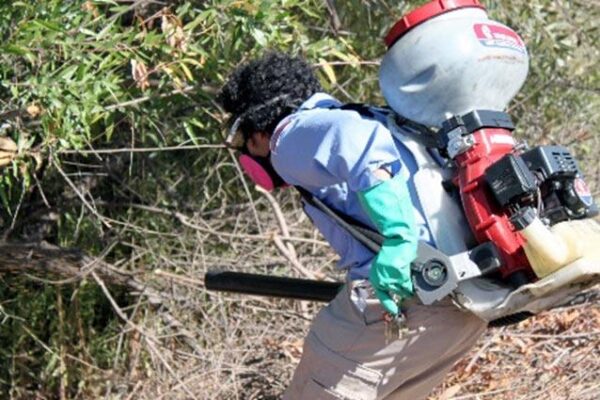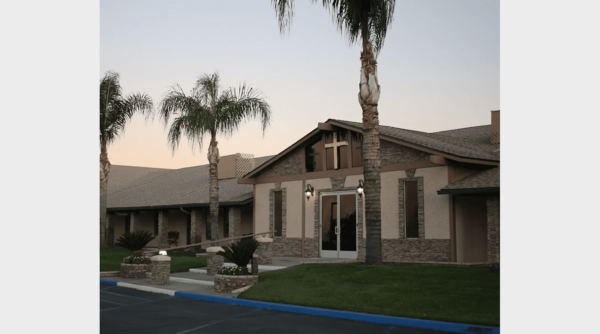Riverside County vector control officials will conduct anti-mosquito spraying next week in Perris and Mecca.
The Perris spraying will encompass a park and multiple residential streets to eradicate growing infestations that pose a potential risk to public health, officials said.
The County Department of Environmental Health has scheduled “ultra-low volume” insecticide spraying between 4 and 7 a.m. Tuesday in the area south of Yosemite Avenue, north of Caldera Street, west of Goetz Road and east of Monolith Trail.
Monument Ranch Park is within the spray zone, as well as several housing subdivisions that border a canal.
According to Department of Environmental Health Deputy Director Kristin Lorge, mosquitoes that were recently netted in the area tested positive for West Nile virus, raising concerns about the potential for it to be transmitted.
Anti-mosquito spraying involves the use of chemicals approved by the U.S. Environmental Protection Agency. Pesticides are emitted as a mist dispersed from machines anchored in the backs of pickup trucks.
Lorge recommended that during operations, residents stay indoors and keep windows closed until at least 15 minutes after the trucks have departed.
Mecca spraying
A consistent increase in the number of mosquitoes testing positive for West Nile virus in Mecca also will require insecticide spraying to eliminate the pests in multiple locations next week, according to the Coachella Valley Mosquito & Vector Control District.
“These are ideal mosquito conditions,” CVMVCD Operations Manager Greg Alvarado said in a statement. “High temperatures, endemic virus detection and summer rain events are making the perfect conditions for mosquitoes to spread virus.”
Alvarado said that so far this year, two dozen mosquito samples retrieved throughout the Coachella Valley have revealed the presence of West Nile, while 103 samples have tested positive for St. Louis encephalitis.
“Attempting to decrease mosquito numbers and interrupt the transmission of virus to people, the district will provide mosquito control treatments by truck and by helicopter,” according to a district statement.
Anti-mosquito spraying is planned Monday, Tuesday and Wednesday, generally between 1 a.m. and 7 a.m., in the area of 66th Avenue and Date Palm Street, along Lincoln Street, between 62nd and 66th avenues, and along Fillmore Street, between 68th and 73rd avenues.
An aerial application is planned during one of those mornings within the community bordering the north end of the Salton Sea.
A detailed description of the specific locations can be found at cvmosquito.org/applicationactivities.
There have been no human infections documented in the Coachella Valley in 2023. However, in other parts of Riverside County, three people have turned up positive for WNV, according to the California Department of Public Health.
Three human WNV infections have been documented in Riverside County so far this year. Statewide, there have been 98 confirmed infections, resulting in five fatalities, according to the California Department of Public Health.
In 2020, there were 10 confirmed human cases in Riverside County, and three in 2021, according to the county Emergency Management Department. No cases were documented in 2022.
Mosquitoes typically become carriers of the virus after feeding on an infected bird and can then spread the potentially lethal strain to animals and humans. Those at greatest risk include seniors and individuals with compromised immune systems.
Symptoms may never materialize, but can include fever, headache, nausea, body aches, skin rashes and swollen lymph nodes.
Mosquito season in Southern California generally spans May to October. To reduce exposure to mosquitoes with WNV, residents were reminded to:
- spend as little time as possible outdoors at dawn or dusk, when mosquitoes are generally on the move;
- wear long pants and long-sleeved shirts during outdoor activity in mosquito-prone areas;
- use insect repellent;
- ensure door and window screens are fitted properly to keep bugs out; and
- get rid of standing water, aside from pools properly treated with chemicals.
Anyone with concerns should contact the Department of Environmental Health at 951-766-9454.







